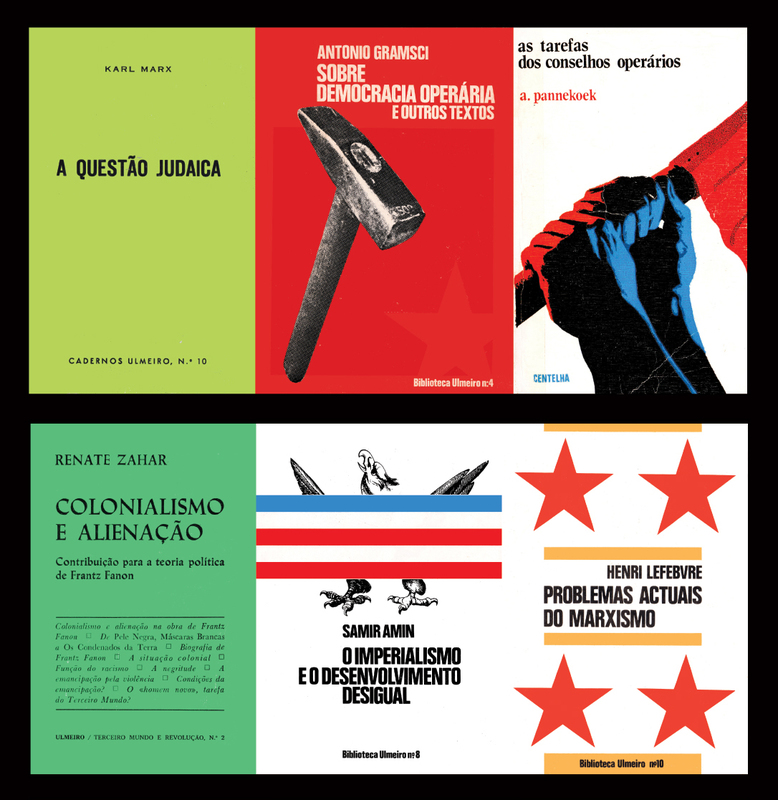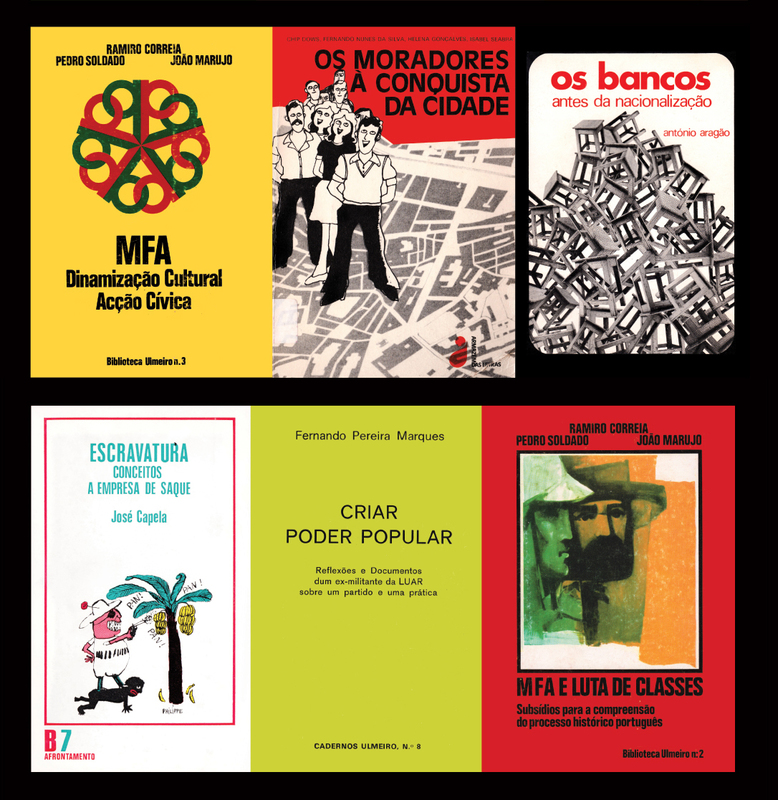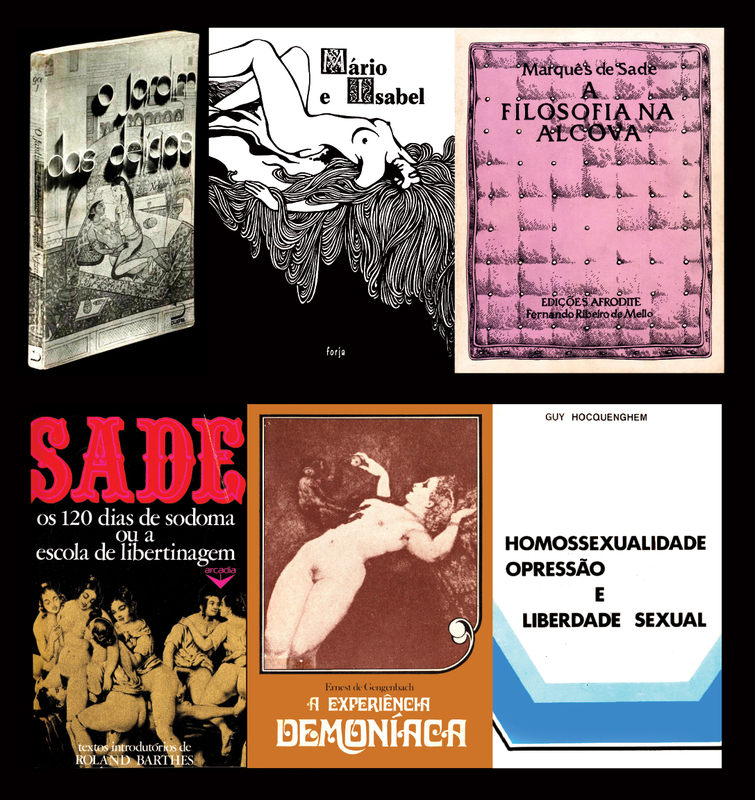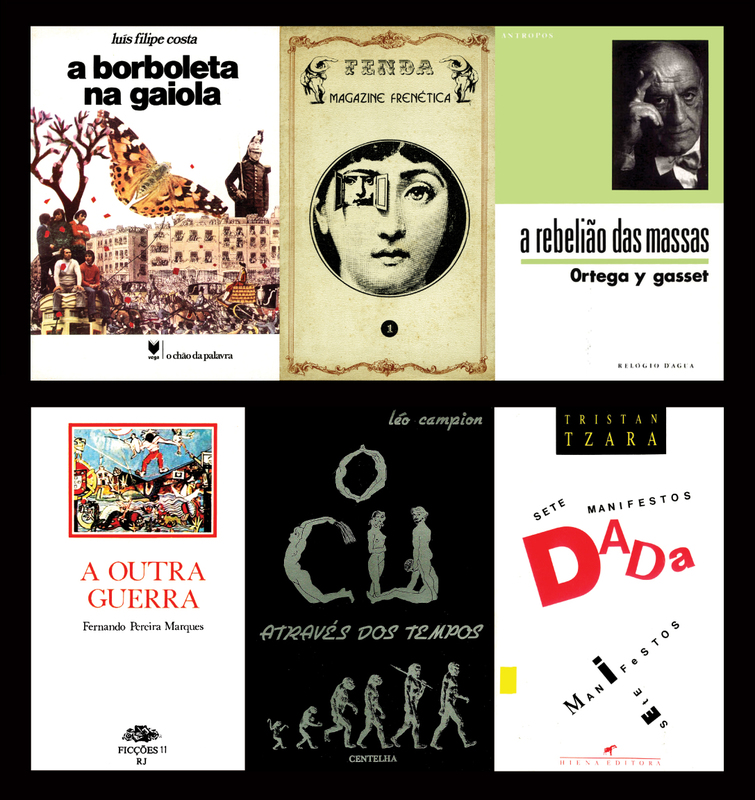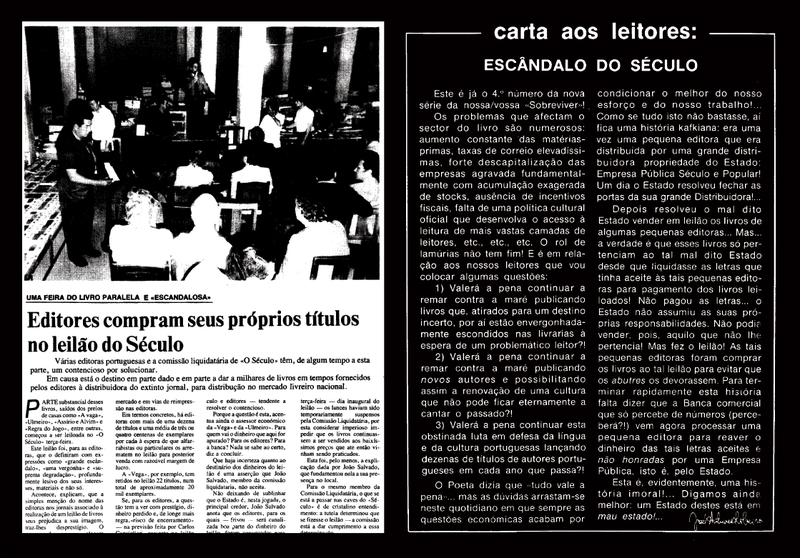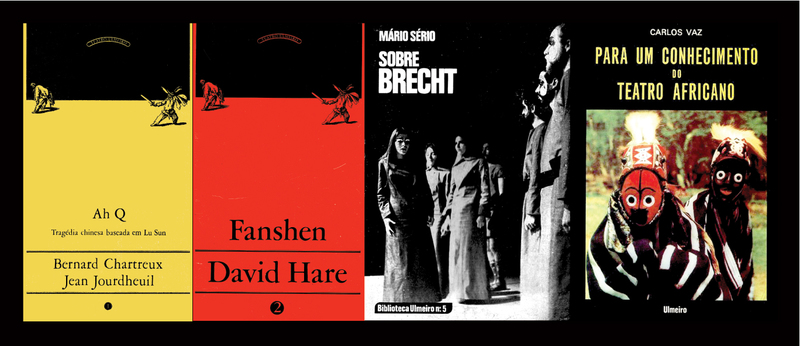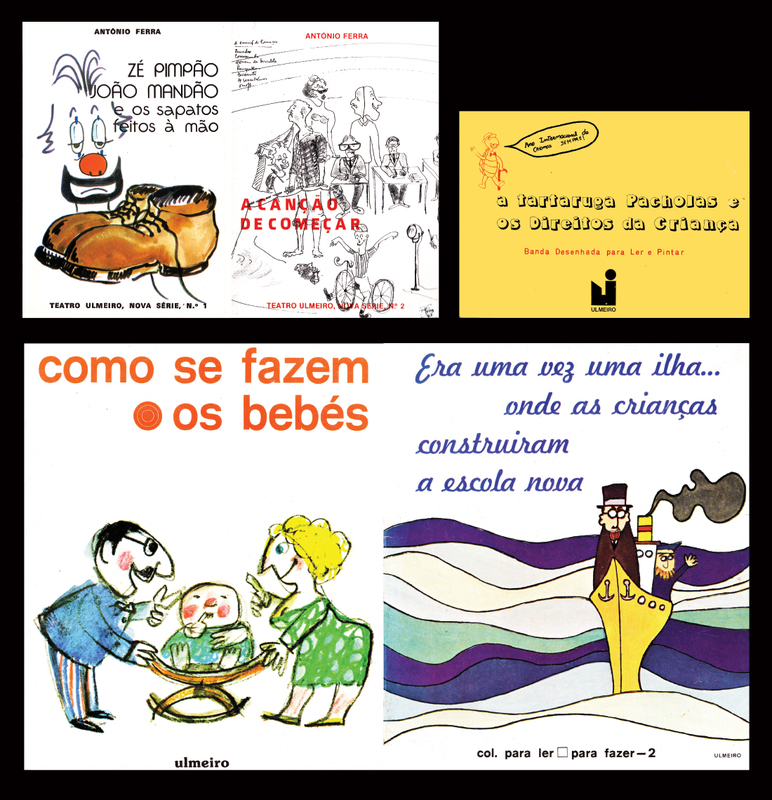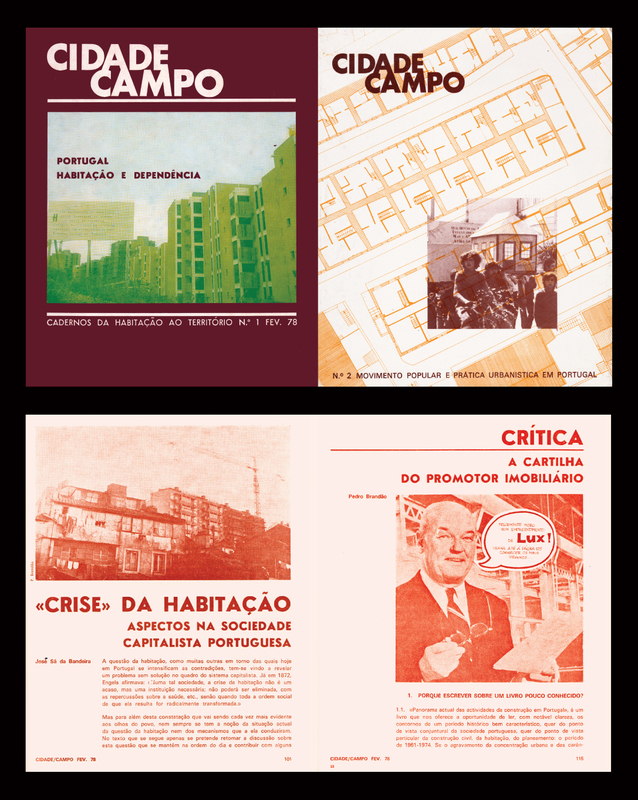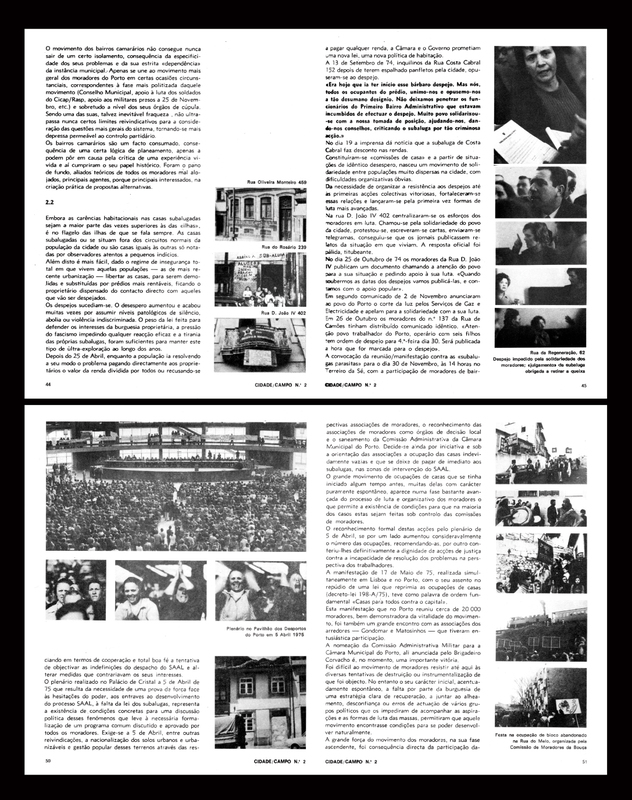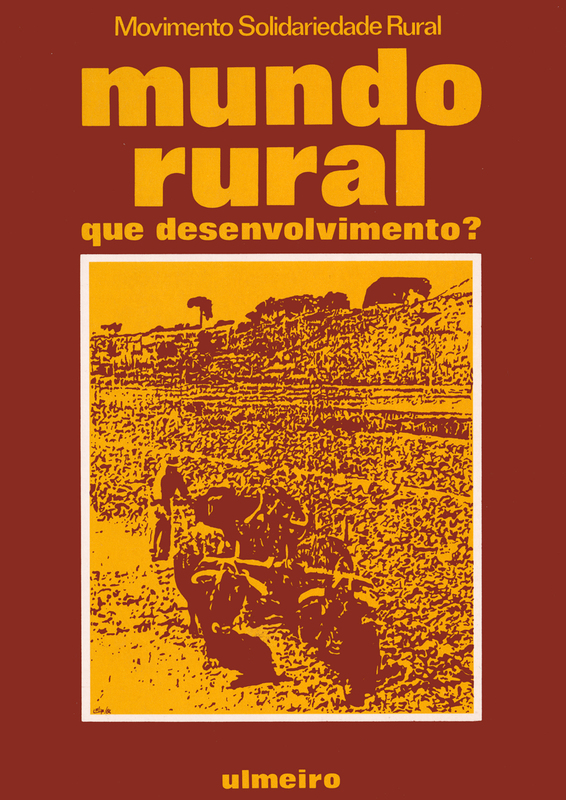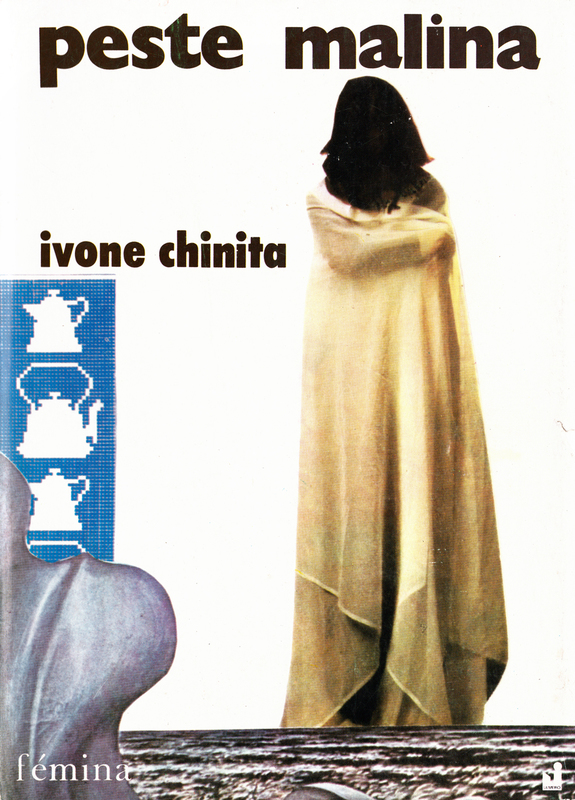4. The Ongoing Revolutionary Process (PREC), its derivatives and the post-revolution
With the overthrow of the dictatorship, a revolution took place in the publishing industry. The shop windows of the bookshops began to exhibit Marx and Sade, and were opened to many other authors, themes and genres. Ulmeiro's formula of combining literature and quality essay was taken up by new publishers, such as Vega, Fenda, Relógio D'Água and Hiena, and by the revitalized A Regra do Jogo, Centelha, etc. Other publishers focused on the essay and/or political books, or on niches. There seemed to be room for all experimentations.
Ulmeiro followed some of those dynamics, focusing on foreign contemporary theatre and children's theatre. In 1976, it published an essay on Brecht and 3 plays in the ephemeral Teatro Ulmeiro [theatre] collection, promoted by Luís Miguel Cintra and Jorge Silva Melo. In 1978 it was the turn to divulge Para um conhecimento do teatro africano [Towards a knowledge of the African theatre], by Carlos Vaz. It revealed socially committed plays by António Ferra, in 1978-79, an author linked to the diffusion of children and youth theatre in the country, with João Brites, José Gil, José Caldas, Carlos Fragateiro and Delfim Miranda. It also held children's theatre sessions at the Ulmeiro Youth Club.
It carried on supporting popular movements, now through the magazine of reflection and intervention Cidade Campo [City Countryside] (1978-79). In it a large group of experts sought to intervene in public policies of housing and urbanism.
At the end of the revolutionary period, the inept management of the now nationalised distributors, especially that of O Século group and Bloco Expresso, will cause incalculable losses to many independent publishers, from Afrodite to Vega and affecting also Ulmeiro. The considerable number of books that had been left at those distributors were not returned to them, nor were they compensated. Furthermore, there were held auctions of these books in which part of them were sold for low prices, flooding the market, devaluing these titles and compromising re-editions in the short and medium term. The critical situation of the media, especially that of the written press, and the existing heated party-political conflict led the decision-makers to neglect and mistreat this ruinous issue, which dragged on for years without any of the harmed publishers having been compensated.
This web publication had the support of CHAM (NOVA FCSH/UAc), through the strategic project sponsored by FCT (UIDB/04666/2020). This work is funded by national funds through the FCT – Fundação para a Ciência e a Tecnologia, I.P., under the Norma Transitória – DL 57/2016/CP1453/CT0062.
See next section: 5. Anti and post-colonialism and new forms of intervention >>

